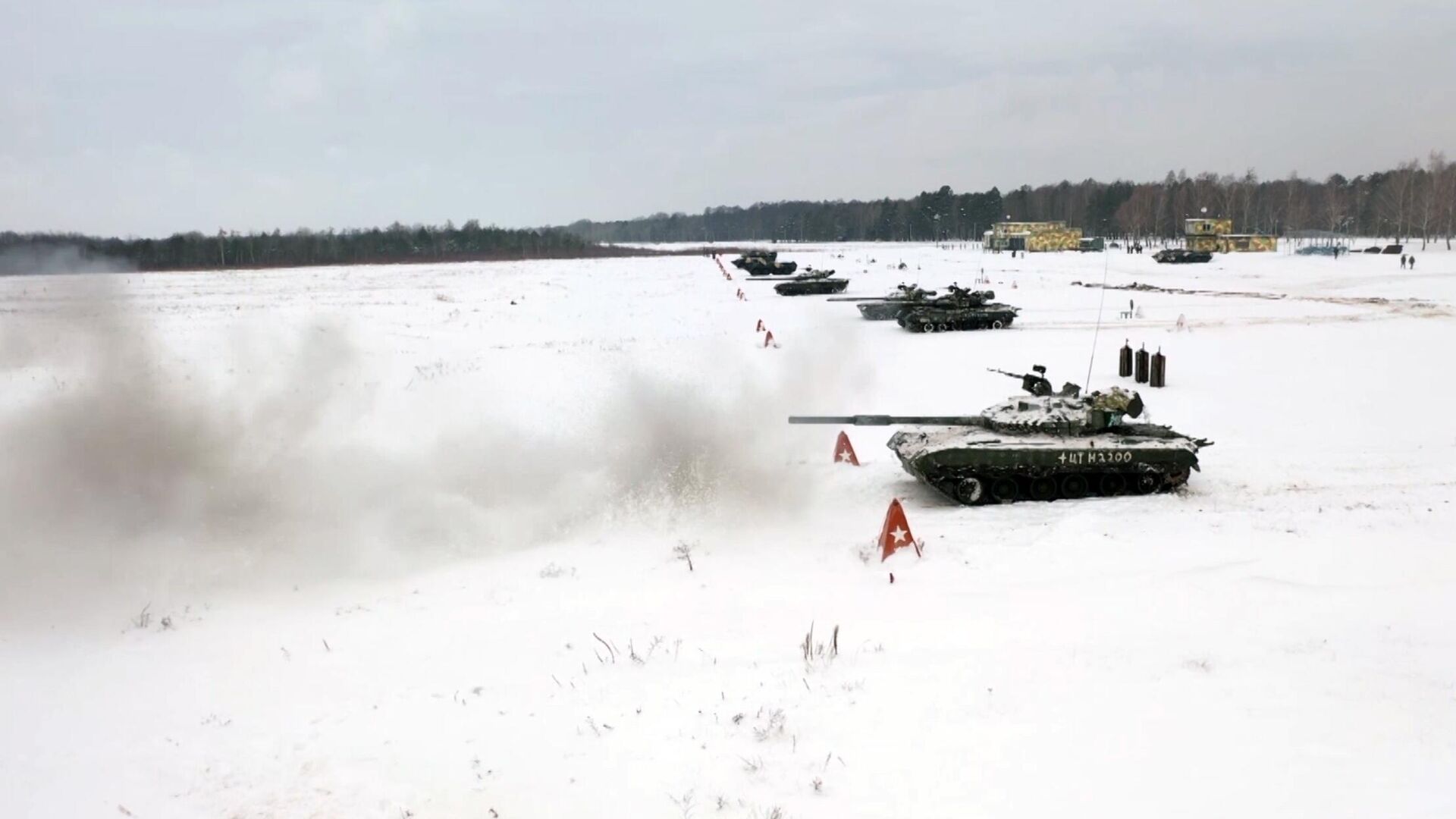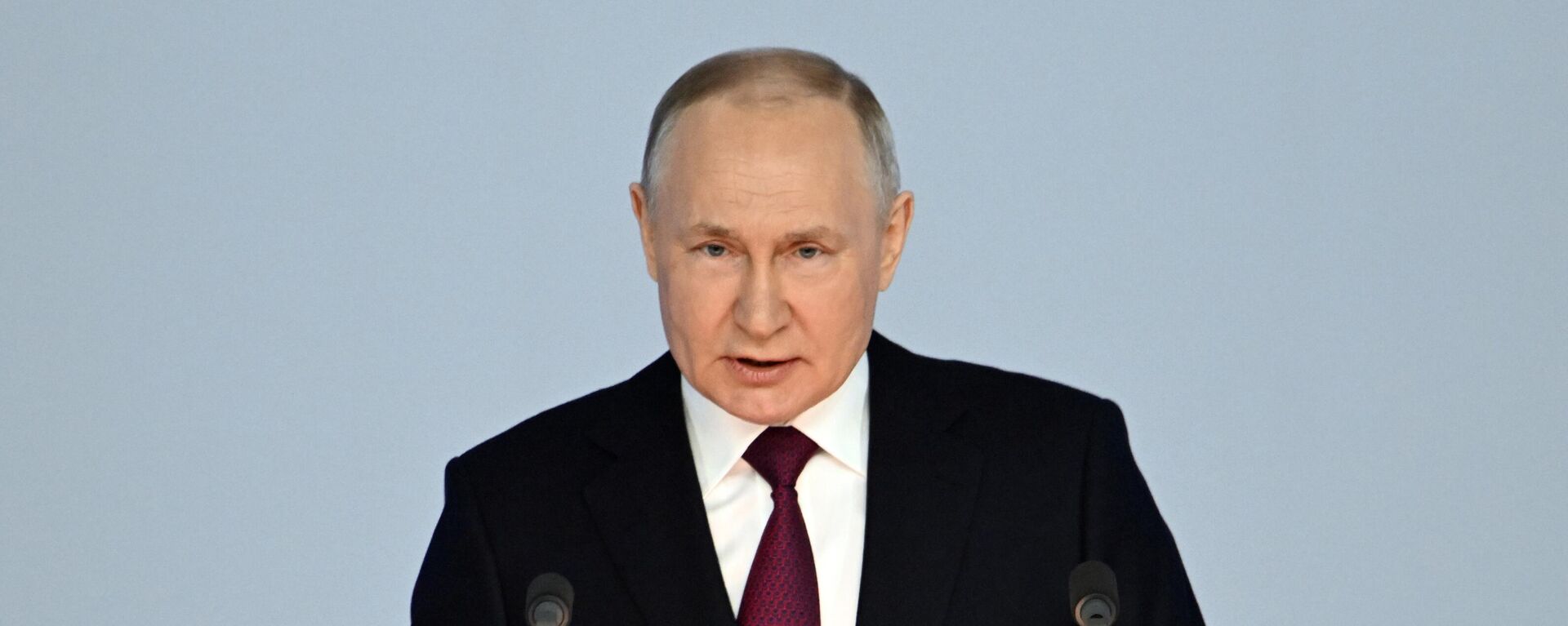https://sputnikglobe.com/20230302/cynical-bryansk-terror-attack-designed-to-taunt-russia-into-offensive-1107954223.html
'Cynical' Bryansk Terror Attack Designed to Taunt Russia Into Offensive
'Cynical' Bryansk Terror Attack Designed to Taunt Russia Into Offensive
Sputnik International
A Ukrainian insurgent group opened fire on a civilian vehicle in a village near the border in Russia’s Bryansk region, killing the driver and injuring a ten-year-old passenger.
2023-03-02T15:25+0000
2023-03-02T15:25+0000
2023-03-02T15:38+0000
analysis
bryansk
attack
terrorist attack
terror
russia
ukraine
https://cdn1.img.sputnikglobe.com/img/07e7/03/02/1107953890_0:51:2216:1298_1920x0_80_0_0_387e25533cec3e2ba93c01207193f36c.jpg
"I see two main reasons [for the attack]. They are counting on a speedy, forceful response from Russia. Keep in mind that the Ukrainian side has been waiting for a Russian offensive since the end of January and through the entire month of February. They have been waiting, and even proclaimed that the battles around Artyomovsk signaled the launch of such an offensive. What was this for? The fact is that in reality, Ukraine is gearing up for a large-scale offensive with a rearmed army in April, a month or a month-and-a-half from now. But they would very much like to force us into an offensive and strike a blow against us on the open fields by luring us out from our defensive lines," Suzdaltsev, an assistant professor and deputy dean of the School of the World Economy and International Affairs at Russia’s Higher School of Economics, told Sputnik in an interview.Earlier in the day, President Vladimir Putin condemned the attack in the village of Lyubechane, Bryansk region, citing it as yet another example of the kind of Western-backed Ukrainian neo-Nazi terrorism that Russia’s military has been fighting against for the past year. Putin stressed that those responsible for the attack and their masters "would not succeed" in their campaign of terror and that Russia would ultimately "crush them."The second motive, according to Suzdaltsev, revolves around an attempt by Kiev to "throw a monkey wrench" into the work of Foreign Minister Sergey Lavrov and the Russian delegation at this week’s G20 meeting in New Delhi.In any event, Thursday’s violence, involving what now appears to have been a few saboteurs which the Russian side failed to catch or neutralize in time, carried a highly "cynical character," Suzdaltsev summed up.The Russian Federal Security Service confirmed Thursday that a group of infiltrators had penetrated the border, and that an operation to liquidate them was underway.
https://sputnikglobe.com/20230302/putin-ukrainian-forces-committed-terror-attack-in-bryansk-by-opening-fire-on-civilians-1107946483.html
bryansk
russia
ukraine
Sputnik International
feedback@sputniknews.com
+74956456601
MIA „Rossiya Segodnya“
2023
News
en_EN
Sputnik International
feedback@sputniknews.com
+74956456601
MIA „Rossiya Segodnya“
Sputnik International
feedback@sputniknews.com
+74956456601
MIA „Rossiya Segodnya“
terrorist attack, infiltration, border, incident, terror, terrorism, analysis, reaction, reasons, cause
terrorist attack, infiltration, border, incident, terror, terrorism, analysis, reaction, reasons, cause
'Cynical' Bryansk Terror Attack Designed to Taunt Russia Into Offensive
15:25 GMT 02.03.2023 (Updated: 15:38 GMT 02.03.2023) A Ukrainian terrorist group opened fire on a civilian vehicle in a village near the border in Russia’s Bryansk region, killing the driver and injuring a 10-year-old passenger. The attack bears the hallmarks of a provocation designed to push Russia into launching a premature offensive, international affairs expert Andrey Suzdaltsev says.
"I see two main reasons [for the attack]. They are counting on a speedy, forceful response from Russia. Keep in mind that the Ukrainian side has been waiting for a Russian offensive since the end of January and through the entire month of February. They have been waiting, and even proclaimed that the
battles around Artyomovsk signaled the launch of such an offensive. What was this for? The fact is that in reality, Ukraine is gearing up for a large-scale offensive with a rearmed army in April, a month or a month-and-a-half from now. But they would very much like to force us into an offensive and strike a blow against us on the open fields by luring us out from our defensive lines," Suzdaltsev, an assistant professor and deputy dean of the School of the World Economy and International Affairs at Russia’s Higher School of Economics, told Sputnik in an interview.
"I have to say that the reaction of our establishment, of the State Duma and so on has been very harsh regarding this terror attack," the academic stressed.
Earlier in the day, President Vladimir Putin condemned the attack in the village of Lyubechane, Bryansk region, citing it as yet another example of the kind of Western-backed Ukrainian neo-Nazi terrorism that Russia’s military has been fighting against for the past year. Putin stressed that those responsible for the attack and their masters "would not succeed" in their campaign of terror and that Russia would ultimately "crush them."
The second motive, according to Suzdaltsev, revolves around an attempt by Kiev to "throw a monkey wrench" into the work of Foreign Minister Sergey Lavrov and the Russian delegation at this week’s G20 meeting in New Delhi.
If Russia responded quickly and forcefully, this would "effectively nullify Lavrov’s work and, in general, break off any contact with our delegation. But it did not work out that way; we have yet to respond. It’s clear that we aren’t going to go on any offensive. But this is something that’s clear to us, here. In Kiev and Washington it’s probably not clear. They were counting on it," hoping “that we would deploy the tanks and advance. This is the situation,” the professor said.
In any event, Thursday’s violence, involving what now appears to have been a few saboteurs which the Russian side failed to catch or neutralize in time, carried a highly "cynical character," Suzdaltsev summed up.
The Russian Federal Security Service confirmed Thursday that a group of infiltrators had penetrated the border, and that an operation to liquidate them was underway.



